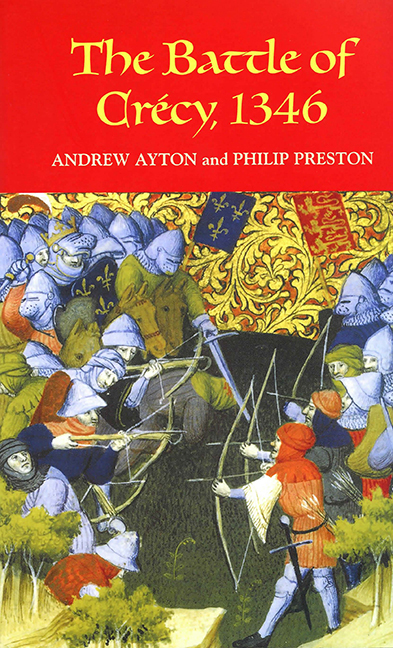Book contents
- Frontmatter
- Contents
- List of Illustrations
- Preface and Acknowledgements
- Abbreviations
- Dedication
- Introduction
- The Campaign
- The Battle
- The English
- The French
- 6 The Nobility of Normandy and the English Campaign of 1346
- 7 Vassals, Allies and Mercenaries: The French Army before and after 1346
- 8 The Battle of Crécy: A Hard Blow for the Monarchy of France
- Sources and Problems of Interpretation
- Index
- Miscellaneous Endmatter
6 - The Nobility of Normandy and the English Campaign of 1346
from The French
Published online by Cambridge University Press: 25 October 2017
- Frontmatter
- Contents
- List of Illustrations
- Preface and Acknowledgements
- Abbreviations
- Dedication
- Introduction
- The Campaign
- The Battle
- The English
- The French
- 6 The Nobility of Normandy and the English Campaign of 1346
- 7 Vassals, Allies and Mercenaries: The French Army before and after 1346
- 8 The Battle of Crécy: A Hard Blow for the Monarchy of France
- Sources and Problems of Interpretation
- Index
- Miscellaneous Endmatter
Summary
The great battles of the middle ages have often been viewed by traditional historiography as formative moments in the emergence of the first national identities in western Europe. Thus the two greatest engagements of the Hundred Years War, Crécy and Agincourt, have been construed not essentially in terms of dynastic rivalries, but as confrontations between two new-born nations. More recently, political history has sought to reassess the claim that national feeling existed at the end of the Middle Ages, and in this respect, this chapter, which will examine the political behaviour of the Norman nobility at the time of Edward III's campaign in 1346, aims to contribute to a better understanding of the functioning of political society of that time. Can the political choices of the Norman nobility be accounted for by reference to ‘national’ considerations, or should we look for an explanation at a less elevated, more local level, where personal interests were at stake?
In 1346, Normandy had been under French domination for almost one and a half centuries, having been removed from the Plantagenet empire by Philip Augustus in 1204. Thanks to the political astuteness of the king of France, who respected the former institutional systems of the province, such as the Exchequer of Rouen, Capetian rule was readily accepted and Normandy remained a duchy separate from the other, older royal lands.
One of the most difficult tasks facing the king of France was to establish the loyalty of a nobility whose eyes were focused not only on their Norman possessions, but also towards England and their estates on that side of the channel. Royal caution prevailed, and though under the Treaty of Paris of 1259 (in which the English king had waived his rights to the duchy of Normandy) some of the Norman estates were seized and granted to French vassals of the Capetians, several families managed to retain both their English and Norman possessions. A prime example is that of the pre-eminent Estouteville family from eastern Normandy who, despite the English line becoming separated from the original Norman branch, retained ownership of estates on both sides of the channel into the fourteenth century. But this was a rare exception. In the vast majority of cases the separation of Normandy from England resulted in a radical split of noble ‘cross-channel empires’ into distinct, individual and autonomous Norman and English estates.
- Type
- Chapter
- Information
- The Battle of Crécy, 1346 , pp. 253 - 264Publisher: Boydell & BrewerPrint publication year: 2005

